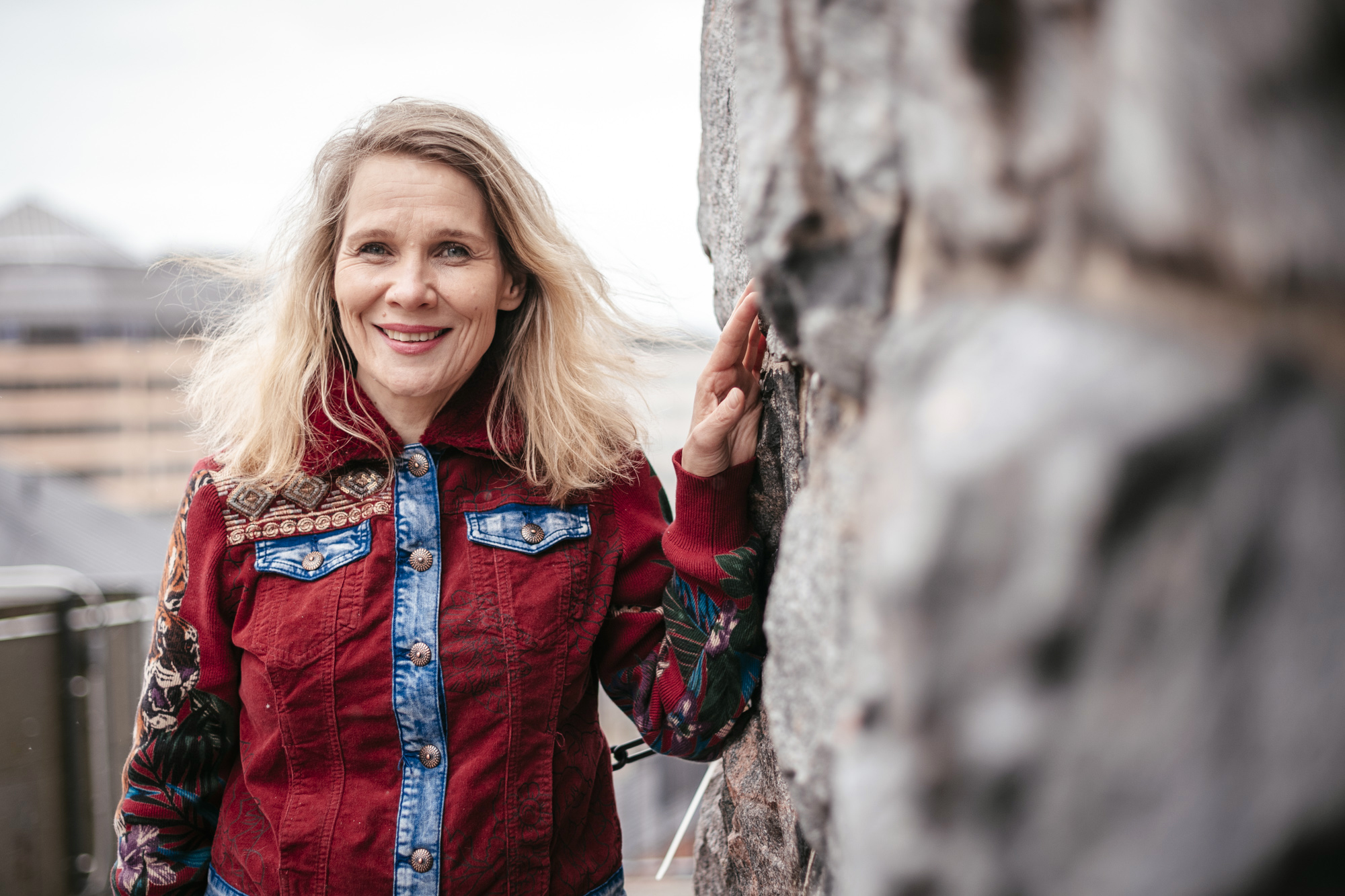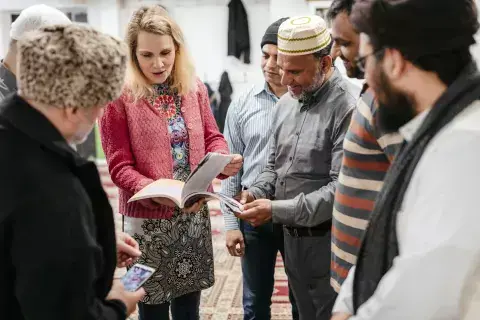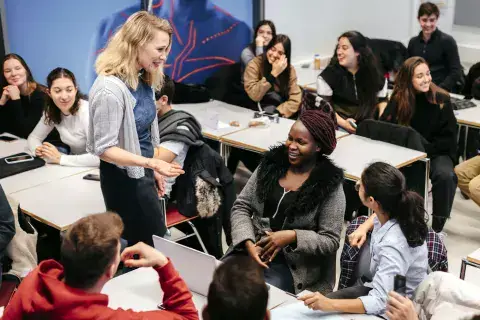
Born and raised in Finland, Heidi Rautionmaa had over 20 years of experience in interreligious dialogue when she joined KAICIID’s International Fellows programme in 2019.
A pastor and an academic, Heidi is a devotee of lifelong learning, which is why she grasped the Fellows opportunity with both hands. “Once you’re in the field, it’s always good to keep learning. Especially if you’re an educator. If you’re always just conducting training but not learning anymore, then you go blind,” she said.
For her, joining the first European cohort of the Fellows programme was a powerful affirmation of the self-taught principles of interreligious dialogue that she had begun to practice decades before. In the 1990’s Finland began welcoming refugees from conflict areas such as Somalia.
Recognising that Finland’s demographic makeup was changing, Heidi began learning Arabic in order to be more inclusive and better informed. This decision marked the beginning of two decades of work in the field of interreligious and intercultural dialogue. Today, many religious leaders in Finland reach out to her for help and advice — whether its Muslim community leaders calling for support after a mosque is vandalised or the Hindu community calling for help on finding a suitable venue for Diwali celebrations.
For much of her career, Heidi has concentrated on grassroots efforts to build cohesive interreligious communities across Finland. She has forged longstanding affiliations with NGOs such as the Religions for Peace Global Women of Faith Network, as well as Faiths Without Borders and the multiregional United Religions Initiative Cooperation Circle — multireligious organizations dedicated to promoting social cohesion in Finland’s capital and elsewhere.

Currently writing her PhD thesis on interworldview education, Heidi is also a student of the University of Helsinki, under whose auspices she has attended interfaith meetings. She is particularly eager to combine her background in academia with her work with civil society organizations.
According to Heidi, this is crucial since, in her view, academia is somewhat detached from the work on the ground as well as from evolving societal needs. At the lower tiers of education, the need for this collaboration is evident. As the make-up of Finland’s classrooms becomes more diverse, so must the method and practice of teaching change and create educators equipped to thrive in a shifting field.
Worldview education is now part of Finland’s newest school curriculum, and many teachers have reached out to Heidi, asking how to go beyond mere classroom management and integrate a holistic perspective in their work with children and parents from different religions.
Beyond the local challenges of Finland’s interreligious nuances, Europe, too is facing its own awakening as it seeks to come to better terms with pluralistic religious communities. “Europe is facing a lot of challenges, much like many parts of the world, and being able to view those challenges from a regional point of view allows Europeans to concentrate on local solutions to problems,” Heidi reflected.
Heidi believes the European cohort should be the precursor to regular regional forums where Fellows from locations with close cultural alignment can learn from one another’s perspectives. “Having a Europe-focused cohort allows for a type of shorthand, and accessibility around issues such as immigration, climate change, European unity, and even secularism, as religion plays a slightly a different role in Europe than in other parts of the world,” she said.

While the European cohort remains a close-knit group, the network that Heidi has accessed from the Fellows programme is borderless. As she operates in a Finnish ecosystem that has a narrow experience of interfaith relations, she finds spiritual reinforcement in being able to talk to other alumni from the Fellows programme all around the world.
Alumni stay in contact through active group chats that provide safe spaces to learn and express opinions within a community of kindred spirits. “Alumni share information, give one another support and propose ideas around how to carry out interreligious dialogue in various parts of the world. People don’t always understand the work you are trying to do, so having the Fellows network and its support is very important,” she said.
Heidi believes that, although small projects are a good place to start, they are not enough. People in the field need support and resources. She therefore sees networking as an opportunity to put the building blocks in place for more material outcomes.
“Right now, we are in a crucial moment.” she said. “A tiny project here and there is not enough anymore. Now that we have had this Fellows training and experience, we have to really do something together. I believe that the KAICIID Fellows can create the structure for that”.